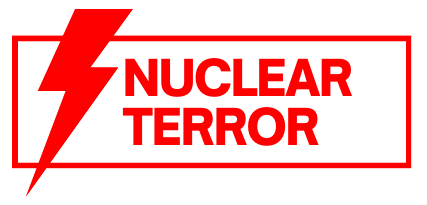Picture a puzzle with missing pieces. As you contemplate South Africa’s status in the Treaty on the Non-Proliferation of Nuclear Weapons (NPT), you find yourself at the precipice of a captivating journey. The question lingers in the air: is South Africa a member of the NPT? In this article, we will unravel the intricate layers of South Africa’s nuclear landscape, examining its nuclear weapons program, commitments, and international relations. Brace yourself for an exploration that will shed light on the enigmatic path South Africa has traversed, and discover the implications it holds for the global community.
South Africa’s Nuclear Weapons Program
South Africa’s nuclear weapons program, which was active until 1989, involved the manufacturing of six air-deliverable nuclear weapons of the gun-type design. After the government decided to halt its nuclear weapons program, a dismantlement process was initiated to ensure the complete elimination of these weapons. The dismantlement process included the destruction of the six completed nuclear weapons and the seventh partially completed device. International cooperation and verification mechanisms, such as inspections conducted by the International Atomic Energy Agency (IAEA), played a crucial role in ensuring the transparency and effectiveness of the dismantlement process.
South Africa’s nuclear weapons program and its subsequent dismantlement process have provided valuable lessons for non-proliferation efforts worldwide. The successful dismantlement of South Africa’s nuclear weapons program serves as a testament to the effectiveness of international cooperation and verification mechanisms in promoting nuclear disarmament. It highlights the importance of transparency, trust-building, and adherence to international agreements in the pursuit of a world free of nuclear weapons. The lessons learned from South Africa’s experience can inform future non-proliferation efforts and contribute to the strengthening of global security.
South Africa’s Nuclear Capabilities and Developments
After dismantling its nuclear weapons program, South Africa’s focus shifted towards assessing its nuclear capabilities and exploring developments in the field. South Africa has taken steps to establish and maintain nuclear facilities for peaceful purposes. The country has invested in nuclear research and development, aiming to enhance its nuclear industry. South Africa’s nuclear facilities have contributed to the production of medical isotopes, such as molybdenum-99, using low-enriched uranium. Additionally, South Africa has explored the potential for nuclear exports, leveraging its expertise in the field. In terms of safety measures, South Africa has implemented stringent protocols and regulations to ensure the safe operation of its nuclear facilities. The country recognizes the importance of adhering to international standards and cooperating with organizations like the International Atomic Energy Agency (IAEA) to maintain nuclear safety. South Africa’s commitment to safety reflects its dedication to the responsible and peaceful use of nuclear technology. Overall, South Africa’s nuclear capabilities and developments demonstrate the country’s efforts to harness nuclear energy for beneficial purposes while prioritizing safety and international cooperation.
South Africa’s Commitments and Policies
To uphold its commitment to nonproliferation and disarmament efforts, South Africa has implemented a range of policies and measures aimed at promoting nuclear security and contributing to global efforts towards a world free of nuclear weapons. South Africa’s role in this regard is significant, as it actively supports various international agreements and initiatives. Here are five key aspects of South Africa’s commitments and policies:
- South Africa supports the Austria-led Humanitarian Initiative for the complete elimination of nuclear weapons, demonstrating its dedication to disarmament.
- In 2017, South Africa signed the Treaty on the Prohibition of Nuclear Weapons, reaffirming its stance against the development and use of nuclear weapons.
- The Non-Proliferation of Weapons of Mass Destruction Act commits South Africa to abstain from developing nuclear weapons, further bolstering its commitment to nonproliferation.
- South Africa is a member of the New Agenda Coalition, a group of countries advocating for nuclear disarmament and the elimination of nuclear weapons.
- South Africa actively supports proposals for a new legally binding framework to achieve and maintain a world free of nuclear weapons, displaying its commitment to global initiatives beyond its own borders.
Through these actions and policies, South Africa demonstrates its dedication to nonproliferation, disarmament, and global nuclear security. It actively contributes to international efforts aimed at reducing the threat posed by nuclear weapons and advancing the goal of a world free of nuclear weapons.
International Nuclear Treaties and Agreements
Building on South Africa’s commitments and policies, it is important to examine the country’s involvement in international nuclear treaties and agreements. South Africa is a member of the Treaty on the Non-Proliferation of Nuclear Weapons (NPT) as a non-nuclear weapon state. The NPT prohibits the transfer of nuclear weapons to other states and provides for the right to peaceful use of nuclear energy. South Africa’s NPT membership entails obligations such as participating in NPT review conferences, where treaty implementation is reviewed every five years. Additionally, South Africa is subject to NPT safeguards and inspections by the International Atomic Energy Agency (IAEA) to ensure the peaceful nature of its nuclear activities.
Moreover, South Africa is a party to the Treaty of Pelindaba, which establishes a Nuclear-Weapons-Free Zone in Africa. The treaty prohibits the research, development, and stockpiling of nuclear explosive devices on the continent, and it requires the application of IAEA safeguards to peaceful nuclear activities. The African Commission on Nuclear Energy (AFCONE) supervises the implementation of the Treaty of Pelindaba.
South Africa also plays a significant role in nuclear disarmament. As a member of the New Agenda Coalition, South Africa advocates for a nuclear weapons-free world and supports proposals for a new legally binding framework to achieve and maintain a world free of nuclear weapons. By actively participating in international nuclear treaties and agreements, South Africa demonstrates its commitment to nonproliferation, disarmament, and the peaceful use of nuclear energy.
South Africa’s Nuclear Power and Energy
South Africa’s nuclear power program has been a significant aspect of the country’s energy landscape. Here are five key points to consider about South Africa’s nuclear power and energy:
- Nuclear reactor safety: Ensuring the safety of nuclear reactors is of utmost importance. South Africa has implemented strict safety measures and protocols to prevent accidents and mitigate any potential risks associated with nuclear power generation.
- Uranium enrichment process: South Africa has developed expertise in the uranium enrichment process, which is crucial for fueling nuclear reactors. This process involves increasing the concentration of uranium-235, the isotope that sustains the nuclear chain reaction.
- Nuclear waste disposal: Proper disposal of nuclear waste is a critical concern. South Africa has established measures to safely manage and dispose of nuclear waste generated by its nuclear power program, adhering to international standards and regulations.
- Renewable energy alternatives: While nuclear power has its advantages, South Africa is also exploring renewable energy alternatives. The country has been investing in renewable energy sources such as solar and wind power to diversify its energy mix and reduce dependence on fossil fuels.
- Economic impact of nuclear power: South Africa’s nuclear power program has had a significant economic impact. It has created job opportunities in the nuclear industry and contributed to the country’s energy security. Additionally, the export of nuclear technology and expertise has the potential to boost South Africa’s economy.
These points provide an overview of South Africa’s nuclear power and energy sector, highlighting the importance of reactor safety, uranium enrichment, waste disposal, renewable energy alternatives, and the economic impact of nuclear power.
Factors Influencing the Decision to Build a Nuclear Program
Factors influencing the decision to build a nuclear program can vary based on domestic politics, international relations, and national security concerns. Political considerations play a significant role in determining a country’s nuclear ambitions. Competing interest groups and personal ambitions of leaders can drive the decision to pursue a nuclear program. Economic implications also come into play, as investing in nuclear technology can have long-term financial costs. Technological advancements may also influence a country’s decision, as the development of new technologies and capabilities can make a nuclear program more feasible. International pressures, such as the influence wielded by nuclear-armed countries or economic sanctions, can also shape a country’s decision. Additionally, national security concerns play a crucial role in the decision-making process. Countries may perceive threats from neighboring nations or desire to intimidate rivals, leading them to consider building a nuclear program. Overall, a combination of political, economic, technological, international, and national security factors ultimately shape a country’s decision to pursue a nuclear program.
Ramifications of Building or Destroying a Nuclear Weapons Program
The decision to build or destroy a nuclear weapons program has significant ramifications for both the country involved and the global community. When considering the effects of such a decision, several factors come into play:
- Effects on global security: The proliferation of nuclear weapons poses a threat to global security, as it increases the risk of armed conflicts and escalations. Building a nuclear weapons program can lead to a dangerous arms race, while destroying it can contribute to disarmament efforts and reduce tensions between nations.
- Impact on regional stability: The presence of a nuclear weapons program in a region can destabilize the geopolitical landscape and lead to heightened tensions among neighboring countries. Conversely, the dismantling of a nuclear program can contribute to regional stability and foster peaceful relations.
- Economic consequences: Building a nuclear weapons program requires substantial financial resources and can divert funding from other crucial sectors such as healthcare, education, and infrastructure development. Additionally, economic sanctions may be imposed on countries pursuing nuclear weapons, further exacerbating the economic consequences.
- Environmental risks: The production and testing of nuclear weapons carry significant environmental risks, including radioactive contamination, soil and water pollution, and long-term health effects. The destruction of a nuclear program can mitigate these risks and contribute to environmental protection.
- Ethical considerations: The decision to possess or abandon nuclear weapons raises ethical questions regarding the potential for mass destruction, loss of innocent lives, and the moral responsibility of nations. It is essential to consider the ethical implications and prioritize the well-being and safety of humanity.
Considering these factors, it becomes clear that the decision to build or destroy a nuclear weapons program carries immense consequences that extend beyond national borders. It is crucial for countries to carefully weigh the potential risks and benefits and prioritize the long-term interests of global peace, security, and well-being.


